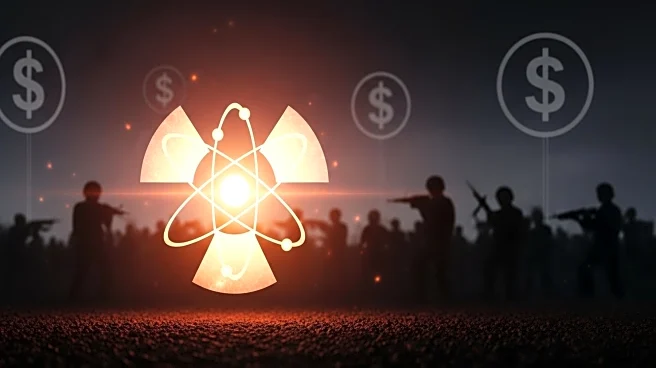What's Happening?
Iran is facing international scrutiny following recent actions that have raised concerns about its nuclear program. Australia expelled Iran's ambassador due to intelligence linking Tehran to attacks in Melbourne and Sydney. The UN nuclear watchdog's head has increased security due to threats from Iran. Iran-backed Houthis have raided offices of international organizations in Yemen. Despite a ceasefire brokered by President Trump after U.S. airstrikes on Iran's nuclear facilities, Tehran continues to defy international norms, refusing cooperation with nuclear inspectors and failing to account for missing uranium stockpiles. Inspectors have been denied access to key sites, raising questions about the extent of damage from the strikes and Iran's remaining capabilities.
Why It's Important?
Iran's actions have significant implications for global security and U.S. foreign policy. The defiance could lead to renewed military intervention by the U.S., as Iran's nuclear ambitions pose a threat to regional stability. The situation also impacts international relations, with Britain, France, and Germany initiating a countdown to reimpose sanctions unless Iran complies with nuclear agreements. These sanctions could further strain Iran's already struggling economy, though their effectiveness may be limited due to Iran's trade ties with China and Russia. The geopolitical tension underscores the challenges in achieving nuclear non-proliferation and maintaining peace in the Middle East.
What's Next?
The international community is poised to reimpose sanctions if Iran does not resume cooperation with the International Atomic Energy Agency and engage in direct talks with the U.S. Iran has threatened a harsh response, including potentially withdrawing from the Nuclear Non-Proliferation Treaty. The U.S. and its allies must navigate these threats while maintaining leverage in negotiations. The situation remains volatile, with potential for escalation if diplomatic efforts fail.
Beyond the Headlines
The ongoing conflict highlights the complexities of nuclear diplomacy and the risks of partisan politics influencing intelligence assessments. The firing of Lt. Gen. Jeffrey Kruse over differing views on the effectiveness of airstrikes illustrates the internal challenges faced by the U.S. intelligence community. The broader implications include the need for transparent and reliable assessments to guide policy decisions and prevent further conflict.










